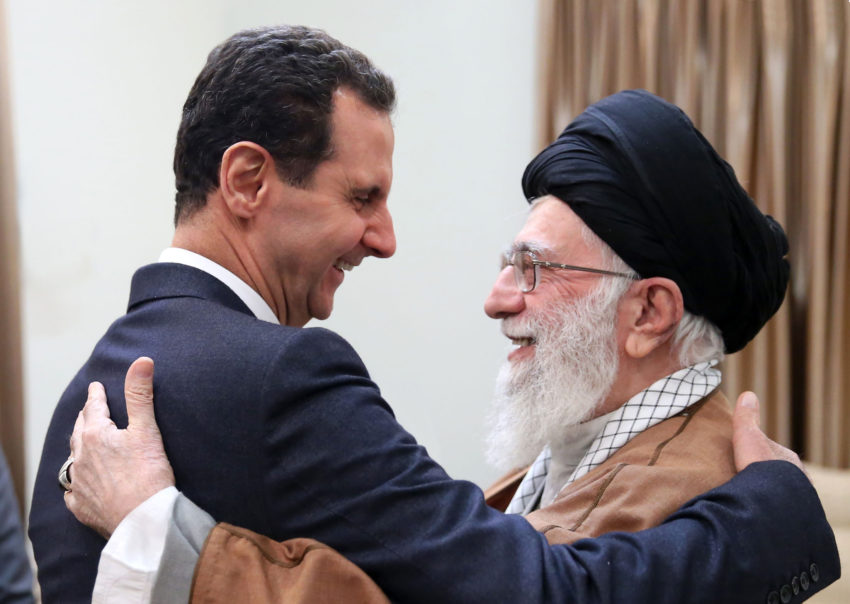ARTICLE AD BOX
The question now is what other countries could be vulnerable to the same dynamics that led to Assad’s fall, especially as Assad’s ouster reminds ordinary people that no dictator needs to be permanent.
By Michael Rubin, Middle East Forum
Few will mourn Bashar al-Assad’s rule. Maybe Western politicians like Senator-turned-Secretary of State John Kerry, former House Speaker Nancy Pelosi, or the late Senator Arlen Spector should have learned that not all Western-educated doctors share Western liberal values after Papa Doc Duvalier’s murderous rule in Haiti or Hastings Banda’s three-decade dictatorship in Malawi.
Assad Is Gone, Lessons Learned
Hindsight is always 20/20, and historians get paid to predict the past. The rapidity of Assad’s collapse does suggest specific lessons, however.
There is more at play than just Israel’s decimation of Hezbollah and Russia’s distraction in Ukraine. Rather, the problem Assad faced was the nature of his army itself.
The Syrian Army is a conscript army. Prior to my first trip to northeastern Syria more than a decade ago to see the Kurds de facto autonomous region, I met with an American diplomat in Paris to ask what questions I should ask to best address American policy concerns.
Among the State Department’s concerns at the time was why the Kurds did not crush the Syrian regime forces in Qamisli, the largest town under their control in which the Syrian Army controlled “security square,” an unmarked area of three-square blocks in the center of town, as well as nearby pockets including the state bakery and local airport.
The Kurdish leaders’ answer? Most of the Syrian soldiers were conscripts. If the Kurds attacked, the soldiers could do one of two things: fight or surrender.
If they fought, the Kurds would kill them but divert resources from the more important fight against Al Qaeda elements that dominated the Nusra Front, the predecessor of the Hay’at Tahrir al-Sham group that led the coalition that earlier today toppled the Assad regime.
Alternatively, the conscripts could surrender, but then, the Kurds pointed out, the regime would likely retaliate against their fathers, sons, or brothers whom the state had conscripted in Aleppo, Damascus, or other places then under regime control.
For Syrians, army service was a necessary evil but, until the outbreak of the civil war, a relatively risk-free one.
Syrians preferred to fight Israel by proxy through Lebanon; the Israel-Syria front in the Golan Heights was long quiet.
Like the Egyptian army, a career in the Syrian army could also prove lucrative as a military-dominated business.
However, the nepotism and discrimination of the Alawi sect from which the Assads hailed created a glass ceiling for most Syrian Sunnis.
When the civil war erupted, the Syrian economy collapsed, as did the standard of living to which Syrians had become accustomed.
Syria was not the richest Arab state—its oil resources were minimal—but agriculture is more manpower-intensive than oil, and so more Syrians had jobs, either as farmers or traders.
The displacement caused by the civil war undercut this. Corruption, always a problem in Syria, skyrocketed.
Fast forward to 2016: With the United States and other Western powers standing aloof, Syrian forces retook Aleppo.
Assad appeared victorious in the civil war, even if the opposition controlled small pockets in northwest Syria and around Idlib, and the Kurds maintained their autonomy.
Larger territory under Assad’s control should have meant a greater pool to recruit and conscript.
The decimated economy, however, made the Syrian currency nearly worthless, and salaries made it difficult for conscripts to feed their families.
This worsened corruption as Syrian troops stole anything to keep their families afloat or simply went absent without leave to resume their position as breadwinners for their families.
At the very least, few Syrian troops had the incentive to put their lives on the line for a dictator who lived large but could not meet their basic needs.
Could Others Be Ripe for Collapse?
The question now is what other countries could be vulnerable to the same dynamics that led to Assad’s fall, especially as Assad’s ouster reminds ordinary people that no dictator needs to be permanent.
The Islamic Republic of Iran is one such country. Iran maintains two militaries. A conscript army that many Iranians resent and seek to avoid, it is common for Iranian farmers to delay registering their sons’ births to keep them as labor for several extra years.
Protests and uprisings in Iran have become more frequent.
Should Iranian Arabs rise, for example, not only might ordinary recruits resist fighting their fellow countrymen, but the impact on the Iranian oil trade that is centered in the region could mean the Islamic Revolutionary Guard Corps—Iran’s more elite, volunteer military—would not have access to the extra cash that incentivizes loyalty.
Throw “Maximum Pressure” into the mix, and President-elect Donald Trump could be the American president who witnesses the Islamic Republic’s fall.
Egypt is another. Moral among conscripts in the Egyptian military is almost as poor as the country itself. The Egyptian Army is better known as a business than a fighting force among Egyptians.
This is a double-edged sword, as the military’s monopolization and distortion of the economy worsens living standards and breeds resentment.
While the Muslim Brotherhood has its own arrogance and undemocratic proclivities to blame for its rapid fall from power, President Abdel Fattah al-Sisi misjudges reality if he believes that the Egyptian people’s support for him is genuine rather than a calculation that he was the lesser of two evils.
If the Egyptian opposition reforms and the Egyptian military continues its corruption, Egypt will face another wave of instability.
Kuwait, too, could be at risk. It has been more than three decades since a U.S.-led coalition liberated Kuwait from Iraqi occupation.
In recent years, the oil-rich emirate has largely faded from the public radar precisely because it has fallen behind peers like Saudi Arabia, Qatar, and the United Arab Emirates in bolstering its economy, while Kuwaitis enjoy a per capita income of more than $32,000, this is less than half of its peers.
Meanwhile, sectarianism is on the rise in Kuwait, and political space is shrinking. Kuwaitis likely can keep the loyalty of their conscripts for now, but they should not take that for granted if they continue to tolerate extremism while mismanaging their economy.
Azerbaijan may also be vulnerable to a Syria-like collapse. Like Syria, Azerbaijan has faced father-and-son dictators spanning decades.
And while Azerbaijan, on paper, is fabulously wealthy because of Caspian gas, World Bank and International Monetary Fund statistics show the average Azerbaijani has a lower standard of living than their neighbors in Armenia and Georgia.
President Ilham Aliyev is prone to military adventurism—he increasingly follows Iraqi President Saddam Hussein’s trajectory.
With political space minimal and living standards in decline, it may not take a civil war for the Azerbaijani army simply to say enough and turn their guns on the Aliyev clan, especially if it means the promise of a more significant share of Azerbaijani resources in the future.
Assad’s fall might put Jordan in increasing danger, albeit for different reasons. Jordan, after all, does not have a conscript army, and its Special Forces are elite and, for tribal reasons, more loyal to the king.
King Abdullah II is much like Mikhail Gorbachev, the last Soviet premier: much more popular abroad than at home. Jordanians grumble about the king and his wife’s wasteful spending. Just as Russia supported Syria until it no longer could, the Gulf states underwrite Jordan.
The question then becomes whether there is any scenario when they no longer can or choose not to.
Add into the mix Iran seeking actively to undermine Abdullah II by supporting radical Islamist factions, Turkey willing to support Jordan’s Muslim Brotherhood, and now Syrian Islamists on Jordan’s border, and the future looks challenging for the Hashemites.
Israel saved the Hashemite monarchy before and would likely do so again. Regardless, Abdullah II now survives on external safety nets rather than his own base, which is hardly a formula for a successful future.
Good riddance to Assad, though the whitewashing of the opposition is unwarranted. Still, what happens in Syria may continue in Syria.
The Arab Spring started in Tunisia but claimed scalps in Egypt, Libya, and Yemen. Assad’s ouster and similar dynamics in some regional countries may soon claim scalps of other long-term dictators.

 2 weeks ago
42
2 weeks ago
42









 English (US) ·
English (US) ·